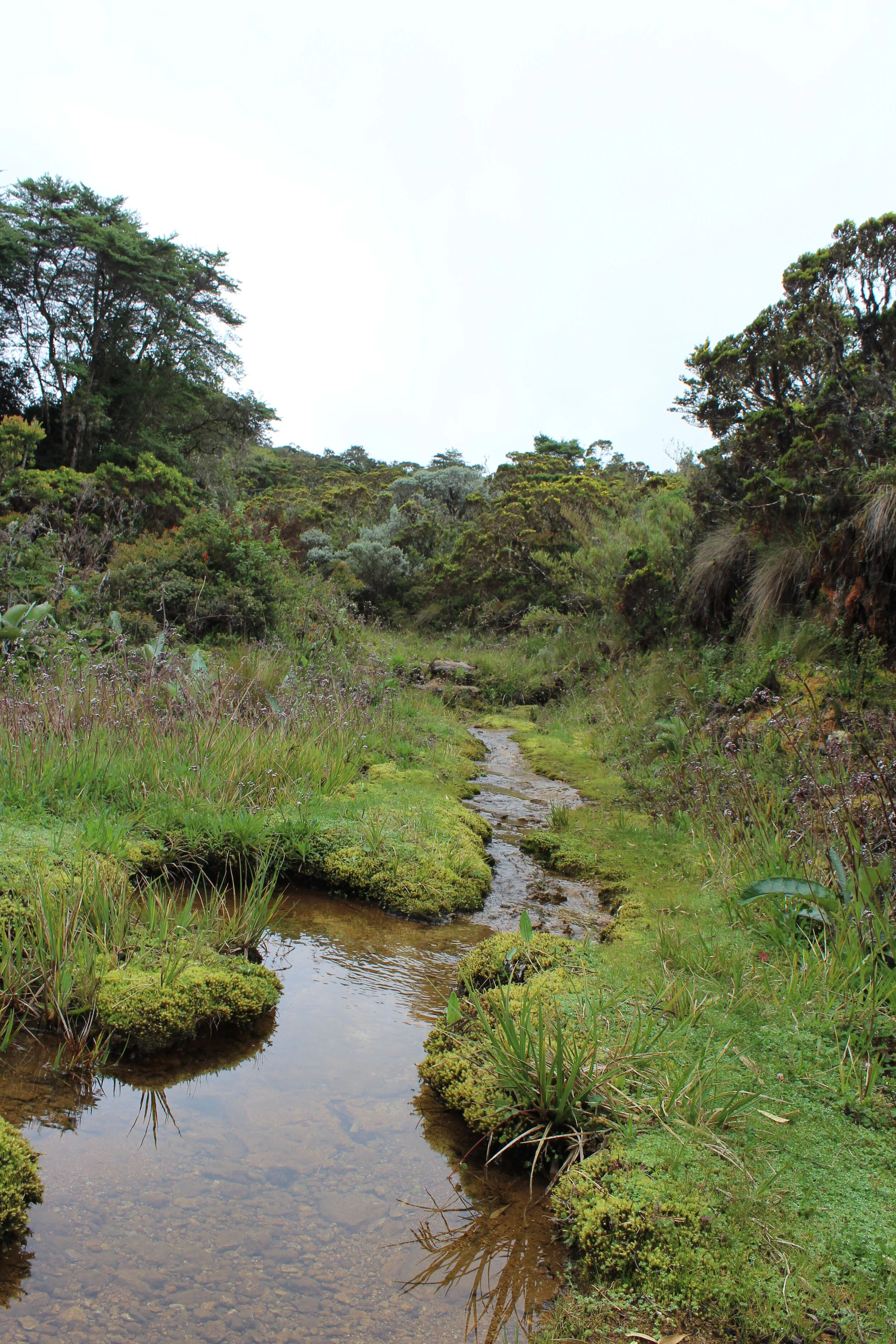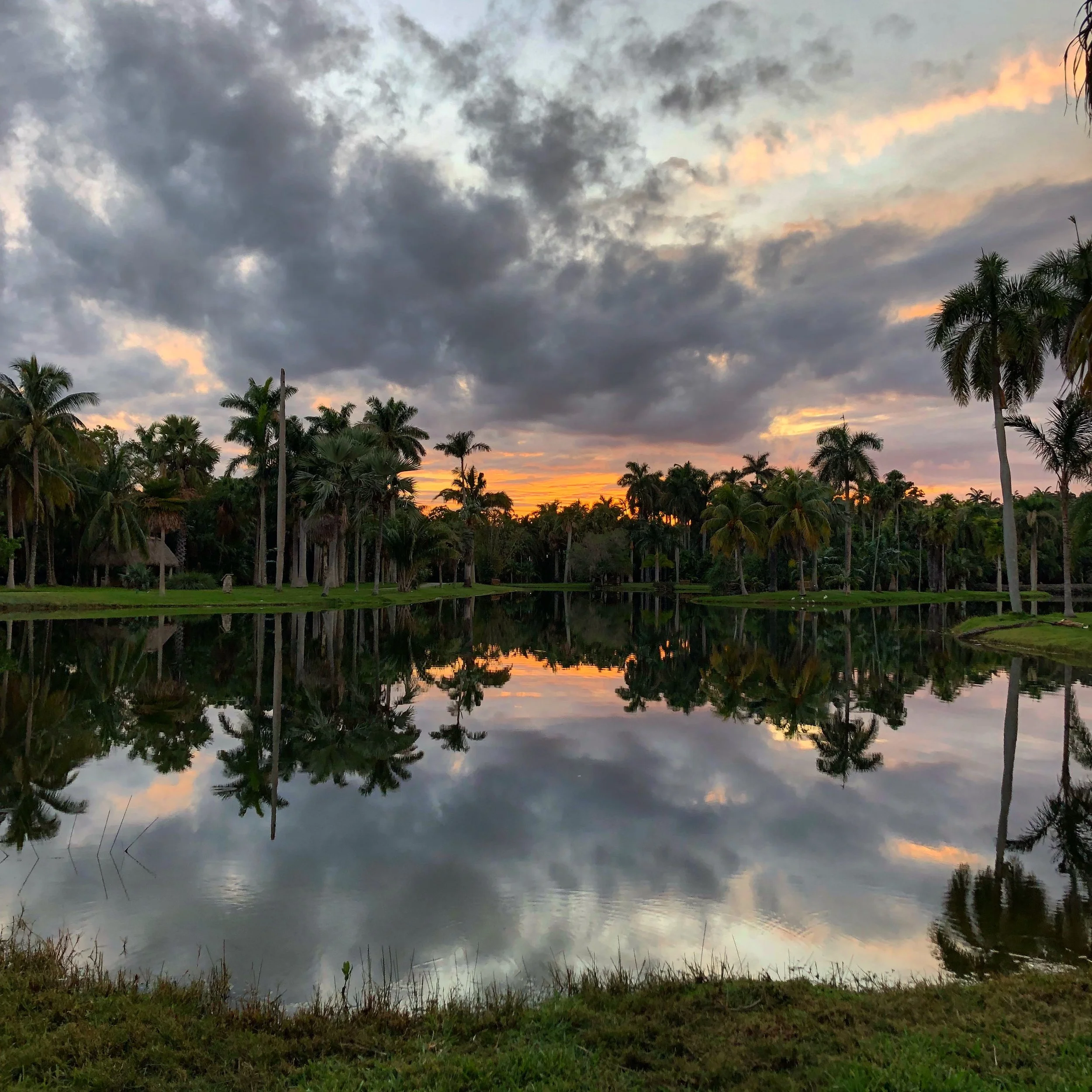Learning outside the classroom is something we’re all growing more accustomed to at the moment. The coronavirus crisis has plunged us all into a new world where we are adapting, ready or not. I am inspired by new initiatives for informal education and reflecting on my own non-traditional learning environments. I am also grieving the missed opportunity to return to my favorite field-based classroom, Costa Rica. In June of 2016 I was accepted into the Organization of Tropical Studies (OTS) graduate Tropical Plant Systematics Course in Costa Rica, a research-based field program. This summer, I was invited back as a Teaching Assistant, but alas, the course has been cancelled. Since I can’t be there this summer I’m just going to dream of being back there.
Read MoreBrittany Harris is a fellow Ph.D. candidate at Florida International University in the Biology department and a good friend of mine. There has been a lot of concern lately with all of the fires making headlines. Since Brittany studies and works in a fire-dependent ecosystem, who better to sit down with and chat about them? She studies the effects of disturbances on pollination systems in islands. Disturbances—including natural (fire and hurricanes) and human-caused ones (mosquito spray). Moral of the story: We need to re-shape Smokey, starting fires is not good, but not all fires are bad. In order to maintain biodiversity and to prevent bigger fires later, we have to let some fires happen, we can’t control nature.
Read MoreAfter working with the Fairchild Challenge and having had a very non-linear path towards science, I saw a unique opportunity to connect high school students with current graduate students. My experience as someone with a desire to pursue a career in science while not necessarily knowing how to go about it prompted me to create and host the Lightning Talks and Evening Walk student workshop. Last week was Fairchild’s second annual event where 30 high school students had the opportunity to hear from six graduate students from FIU and UM about their path to science.
Read More2018 has been a very busy and productive year. It was probably the hardest year since I started graduate school so I think it’s appropriate to start the New Year admiring some accomplishments with gratitude.
Read MoreI met Haydee Borrero when I came to visit Miami in 2014. She asked me if I had ever been to the Everglades and when I said no she said “I’ll pick you up tomorrow at 5am”. It was a magical morning. I am happy to call her my friend to this day. This past year we traveled to Cuba together twice since our field sites overlapped. Haydee has had an interesting path is now doing some really cool work as part of her PhD.
Read MoreI am happy to announce that a paper that I have been working on for many years has finally been published in Brittonia this past week! The paper focuses on ten species in the genus Miconia (Melastomataceae), the largest genus in the family. These ten species all occur in the northern Andes in Colombia and Venezuela and the Sierra Nevada de Santa Marta and Coastal Cordillera of Venezuela, with one species endemic to Jamaica. This study illustrates the importance of field and herbarium collections. Herbaria document the world’s flora and provide a permanent record of botanical diversity. This is particularly important for endangered and threatened species such as those in the Miconia ulmarioides complex.
Read MoreTwo interns were selected from a pool of applicants to work along side me and learn the molecular techniques that have been the basis of my Ph.D. research. They learned how to extract plant DNA from leaves, use PCR to target specific gene regions, Cycle Sequencing to get the DNA sequence of the targeted gene region and were introduced to next-generation sequencing.
Read MoreI recently went to a talk given by Drs Doug and Pam Soltis, who are botanists at the University of Florida. They discussed their work on molecular systematics and evolutionary genetics. Their talk was so inspiring that I’d like to talk about how we use DNA molecules and how it all fits into the bigger puzzle of life. The Soltis’s focused specifically on the portion of their work involving the Tree of Life.
Read MoreMost people know that botany is the study of plants, but what does it actually mean to be a botanist? For me, studying plants means inspecting the subtle and sometimes grandiose differences between species. Documenting life on Earth as it is increasingly threatened is imperative in my opinion. If we don’t know what exists in an area, how can we properly implement conservation strategies to preserve Earth’s beautiful biodiversity?
Read MoreI have a unique graduate fellowship through the Education Department at Fairchild where I help run the Fairchild Challenge Program. The Fairchild Challenge is a multidisciplinary science competition that schools participate in across South Florida. Challenges are designed with the goal of reaching a large diversity of students. All challenges ask students to research and observe the natural world around them. We have three citizen science challenges that span all three levels and engage students in real authentic research opportunities which otherwise lack from standard classroom settings.
Read More








